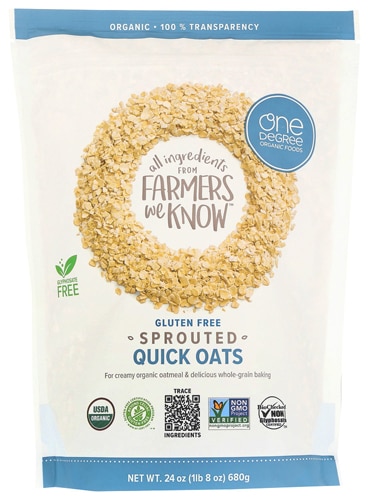[vc_row][vc_column][vc_column_text]The evidence against eating ultra-processed foods is piling up.
A new review of 45 scientific analyses has found that stepped-up
consumption of ultra-processed foods is tied in varying degrees to 32 health problems. Specifically, the study — published in February 2024 by The BMJ, a medical journal — uncovered “highly suggestive” evidence that eating more ultra-processed foods
raised the risk of:
- Obesity by 55%
- Sleep disorders by 41%
- Type 2 diabetes by 40%
- Depression by 20%
Meanwhile, the researchers — from Australia, France, Ireland and the U.S. — found “convincing” evidence that greater consumption of ultra-processed foods could boost the risk of anxiety by as much as 53% and the risk of early death by 20%, CNN reported.
The study defined greater consumption of ultra-processed foods as consuming 10% more of them each day.
Ultra-processed foods constitute 58% of the American diet, the study says. Examples of ultra-processed foods are:
- Sugary beverages
- Packaged snacks
- Breakfast cereals
- Lunch meats
- Frozen dinners
Higher amounts of sugar, fat or salt might show up in ultra-processed foods, yet there might be lower amounts of fiber and vitamins.
The National Institutes of Health says a
breakfast consisting of ultra-processed foods might be a bagel with cream cheese and turkey bacon, while a breakfast consisting of unprocessed foods might be oatmeal with bananas, walnuts and skim milk.
“Research is still clarifying if any harmful health effects from ultra-processed foods arise from the higher degree of processing or simply from the poorer nutritional quality often accompanying these types of foods,” according to Harvard University’s
T.H. Chan School of Public Health.
Earlier research points to problems with ultra-processed foods
Previous research backs up the notion that ultra-processed foods can damage your health, though:
- A French and Brazilian study published in 2019 found a 10% jump in the consumption of ultra-processed foods was associated with a 13% higher rate of coronary artery disease, a 12% higher rate of cardiovascular disease and an 11% higher rate of cerebrovascular disease (affecting blood flow and blood vessels in the brain).
- A Spanish study published in 2019 indicated that higher consumption of ultra-processed foods (more than four servings per day) was connected to a 62% greater risk of death from any cause.
- An American study published in 2019 showed that people who ate processed food consumed more calories and gained more weight compared with a whole-food diet consisting of unprocessed foods.
What’s in ultra-processed foods?
In an article on the American Medical Association’s website, Dr. Stephen Devries, a preventive cardiologist and executive director of the nonprofit Gaples Institute in Chicago, notes that
ultra-processed foods “are industrial creations made with little — if any — whole foods that often contain large amounts of added sugar and salt.”
Furthermore, ultra-processed foods are typically filled with artificial colors and additives, Devries says.
These foods “are clever manipulations of mostly unhealthy ingredients [that] appeal to appeal to common cravings — tasty by design, but it’s all a trick,” he says. “For example, our bodies are naturally drawn by evolution to the sweetness of fruit because of its associated nutritional value.”
How to cut back on ultra-processed foods
So, now that you know how harmful ultra-processed foods can be to your health, what you can do to reduce or eliminate consumption of them?
Tufts University suggests you should look at each meal and food purchase with an eye toward e
ating more whole foods and minimally processed foods. These include:
- Fruits
- Vegetables
- Nuts
- Seeds
- Beans
- Lentils
- Whole grains
- Milk
- Cheese
- Eggs
- Fresh or frozen seafood
- Poultry
- Lean meats
Ultimately, you should aim for a diet with as many whole foods as possible. But if you can’t find a suitable whole-food alternative, look for minimally processed foods with the least amount of added sugars, artificial ingredients and sodium, Tufts recommends.
There are differing views on ultra-processed foods, though.
Joan Salge Blake, a clinical professor of nutrition at Boston University, maintains that some healthy, affordable, convenient foods are unfairly being miscategorized as ultra-processed.
Blake acknowledges on the university’s website that many
ultra-processed foods offer little nutritional value. But some foods — such as canned tomatoes, canned beans, commercially baked whole wheat bread and rolls, whole grain
breakfast cereals, flavored yogurts and soy burgers — are being put in the ultra-processed bucket that shouldn’t be, she says.
“Can we upgrade some of these healthier, affordable processed foods out of the ultra-processed group so that the public isn’t confused and misinformed about how to plan, enjoy, and afford a healthy diet?” Blake wrote.[/vc_column_text][/vc_column][/vc_row][vc_row][vc_column][vc_text_separator title="Featured Products" border_width="2"][vc_row_inner equal_height="yes" content_placement="middle" gap="35"][vc_column_inner width="1/3"][vc_single_image image="174980" img_size="full" alignment="center" onclick="custom_link" img_link_target="_blank" css=".vc_custom_1715377337745{padding-right: 7% !important;padding-left: 7% !important;}" link="https://www.vitacost.com/frontier-soups-ohio-valley-vegetable-soup-mix-gluten-free"][/vc_column_inner][vc_column_inner width="1/3"][vc_single_image image="174979" img_size="full" alignment="center" onclick="custom_link" img_link_target="_blank" css=".vc_custom_1715377360662{padding-right: 7% !important;padding-left: 7% !important;}" link="https://www.vitacost.com/bobs-red-mill-non-gmo-red-lentils"][/vc_column_inner][vc_column_inner width="1/3"][vc_single_image image="174981" img_size="full" alignment="center" onclick="custom_link" img_link_target="_blank" css=".vc_custom_1715377382613{padding-right: 7% !important;padding-left: 7% !important;}" link="https://www.vitacost.com/thats-it-prebiotic-probiotic-fruit-bars-blueberry"][/vc_column_inner][/vc_row_inner][/vc_column][/vc_row]



